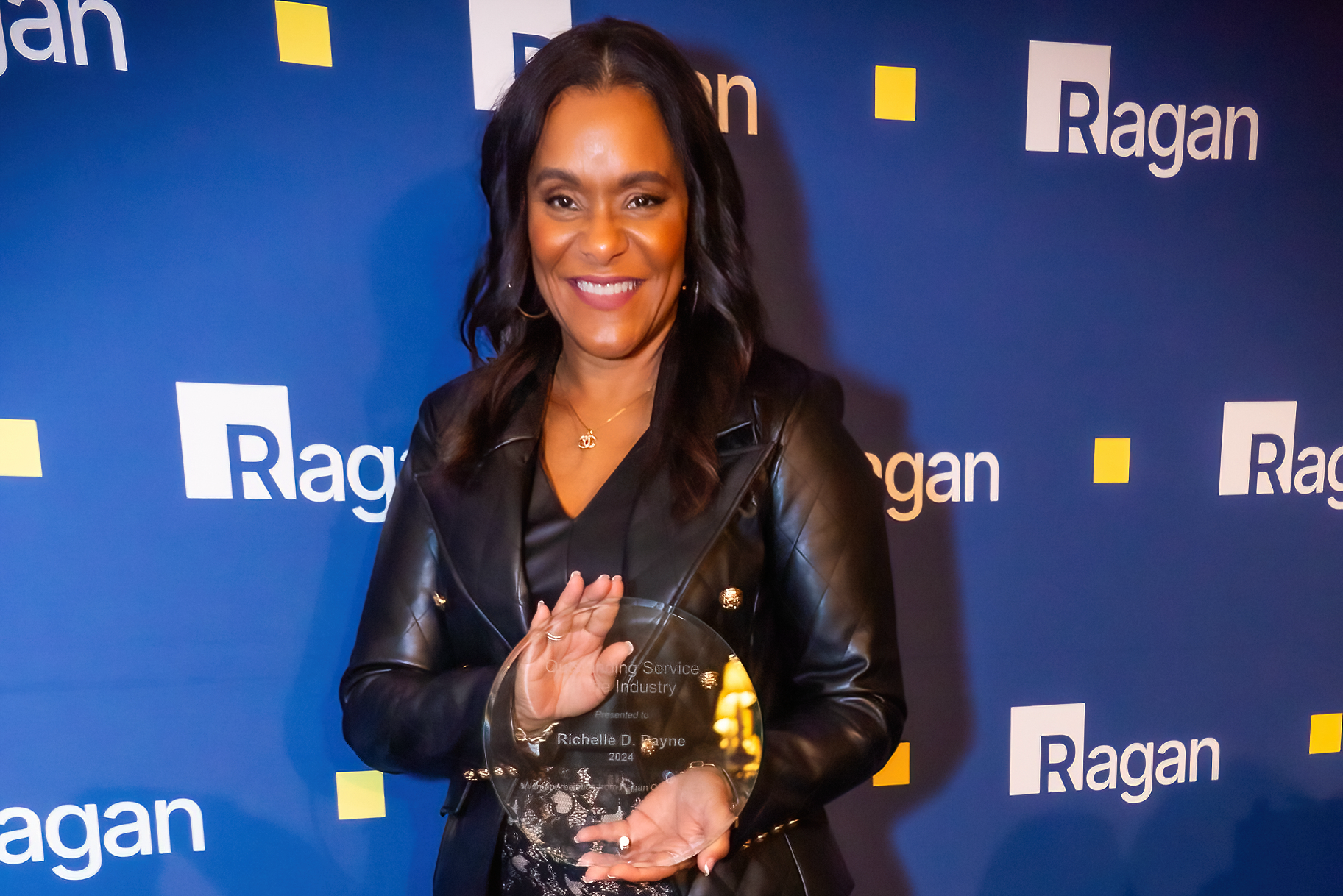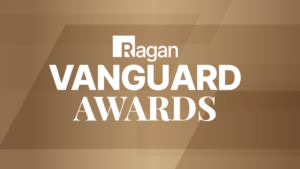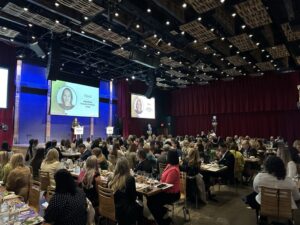‘An influencer to the influencers’: Richelle Payne honored with Ragan’s Outstanding Service to the Industry Award
Payne was honored for a life of improving the industry for all.

This is Richelle Payne’s time to serve.
The way she sees it, in her 20s, she paid her dues. In her 30s, she differentiated herself and specialized. In her 40s, she became a leader.
“Now that I’m in my 50s, I get to call the shots and that means a lot of different things,” she said. “It means being able to have a sense of presence and professional courage, to be able to recognize when a story is not really the story, recognizing how to nurture talent, how to mediate obstacles with diplomacy and grace.”
By day, she serves as vice president for strategic communications and marketing at Hampton University, an HBCU. But outside of that, she serves in a wealth of philanthropic roles, many devoted to advancing the professional and personal development of Black and diverse communications practitioners. She is president emeritus of the National Black Public Relations Society, Inc., a member of the board of directors for the Diversity Action Alliance, an adviser to the Public Relations Society of America, Inc. and a member of the National Association of Black Journalists.
For this commitment to improving the industry and offering a hand up to others, Payne was awarded the Outstanding Service to the Industry Award as part of Ragan’s CSR & Diversity Awards.
“Richelle’s passion for increasing the diversity of the communications industry helps everyone, from the professionals who find belonging in the field to the audiences who benefit from authentically crafted messages,” said Jon Minnick, special projects manager at Ragan Communications. “It’s our honor to offer her this award in recognition of her outstanding work.”
“I like to make sure that there’s a balance between working in the business or working in the industry and making sure that I’m working on improving and advancing the industry,” Payne said.
Learning to serve
Payne recognized the importance of service early through a role with Hampton Road Black Media Professionals, a sister organization to the National Association of Black Journalists.
“It provided me the leadership opportunities that I might not have gotten necessarily on my job,” she said. “It taught me how to serve. It taught me time management, because I earn a paycheck, and I’m being evaluated on what I do from 9 to 5, but I’m also being fulfilled.”
Payne stressed using service as a way to further your career and not to become pigeonholed as purely doing communications work in volunteer roles.
“I think that it’s important to also make sure that while you’re tracking with professional associations, that you’re also looking for ways to exercise other muscles, and sometimes that comes with being involved in organizations that are on the periphery or even outside of what you do,” she said.
Through her work with the National Black Public Relations Society, Payne became involved with the PRSA, which she said gave her a new perspective on the industry.
“It was an opportunity to be more of an advocate than a practitioner,” she said. “And looking at ways that the industry was training and retaining and advancing practitioners of color, particularly African Americans.”
Her volunteer work helps organizations “raise their eyes,” she said. “When you’re dealing locally, you kind of look straight ahead at what’s in front of you that rather than look over and out. So, we try and bring that kind of visionary advocacy, if you will.”
What’s at stake
Uplifting Black people is at the core of Payne’s work, either through her job at Hampton University or her volunteer work. When she speaks on the importance of improving the industry for this underrepresented group, her emotion and sincerity shine through.
“What’s at stake is practitioners who are marginalized to the extent that they are pushed out to other industries or to starting their own agencies,” she said. “What that does is it leaves a void for the organization that they lead, but it creates a sense of chaos for person that is pushed out.”
Too often, Payne said, attention is focused on improving the pipeline for new practitioners to enter the field. But research she’s led indicates the problem occurs more in the mid-career stages. Seven or eight years into their work, they may stop getting stretch assignments, or the plum billable accounts. Over time, they stagnate – and are pushed out.
“You’re talking about treatment from a protected class that is worthy of discussion that we’re not courageous enough to have,” she said.
But despite the challenges, Payne’s love for the industry remains.
“It’s a wonderful profession, because you have the responsibility not only to teach and train people around the thing that you represent, but you can be the voice behind some of the world’s greatest influencers. You can be an influencer to the influencer, and that carries a lot of power and pride.”
Allison Carter is editor-in-chief of PR Daily. Follow her on Twitter or LinkedIn.







